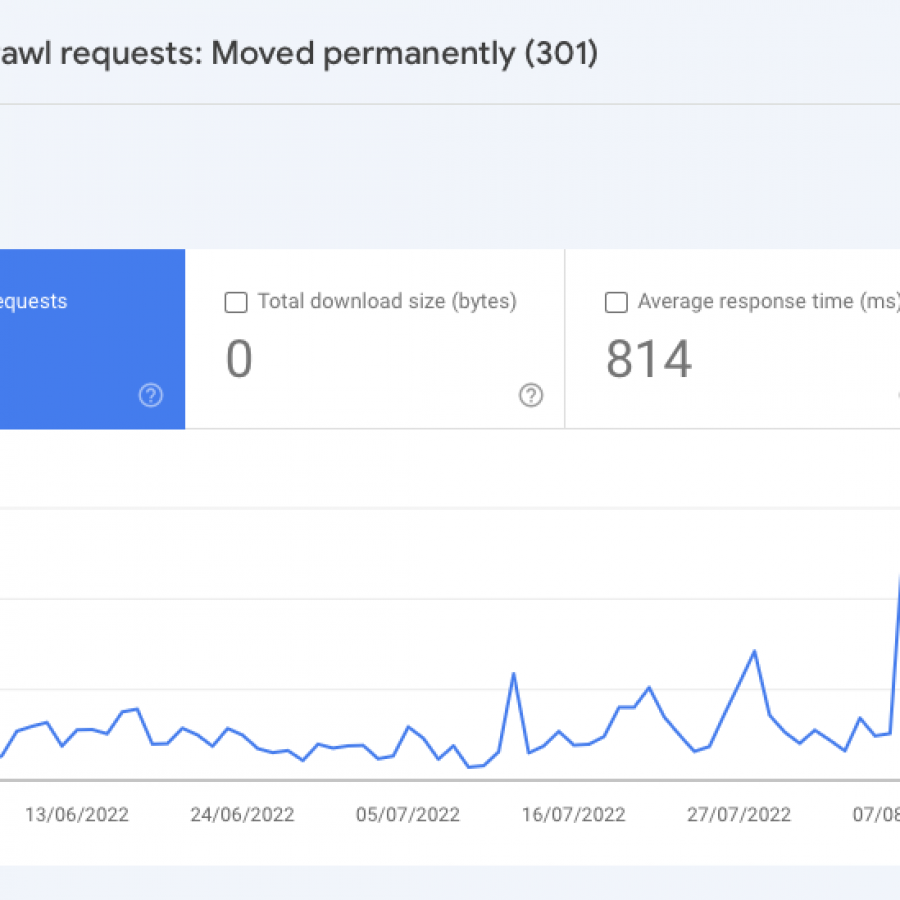How to handle redirections and the impact of having redirections in place are a couple of questions that usually arise during an SEO audit process. Some SEO experts are more fatalistic than others in how these redirections can affect your website's rank on Search Engine Result Pages (SERP).
Be aware when an SEO expert says you must remove all the redirections from your website.
In recent months I've received a few requirements from very concerned clients who have been advice about "removing ALL the redirections" on their website because that is affecting their SEO. That request usually comes with a very long sheet that includes all the "bad" links they have found that should be fixed "immediately" or else.
First, the only thing these types of reports say is: "this link ---- is now Ponting to ----", nothing else; it doesn't specify if that is good or not, so let's find out how we should handle these requests.
Making common sense about redirections on SEO
Let's start with a definition of what a "redirection" is:
*Redirecting URLs is the practice of resolving an existing URL to a different one, effectively telling your visitors and Google Search that a page has a new location. *(See more about Redirects and Google Search)
In short, a redirection is a "practice" to take a request to a given URL and redirect the request to a new URL.
Why should you be redirecting users to a new address?
There are a few instances where this practice can be helpful:
- Your site is using HTTP, and you want to start using HTTPS from now on (see more about how to Secure your site with HTTPS)
- You want to change the URL structure of your site, for example, from mysite.com/2020/02/01/awesome-article.html to mysite.com/news/awesome-article.html but you still have the traffic coming to the OLD location, and you don't want those users to land on a broken page, in that case, you will capture the request and redirect the user to the new URL.
- You want to change the domain of your website permanently, for example, from mysite.com to myawesomesite.com
As you can see in these cases, there is nothing wrong with having redirections in place; this is an advantage for you. When done intentionally and with purpose, adding a redirection can help you maintain your website's SEO health; the best example is when you are adopting HTTP over HTTPS.
When done carelessly, it can backfire and have a negative impact.
How can redirections affect your SEO?
It has been said that "Redirections are not a ranking factor", but let's apply some common sense to understand this. If you are moving to a new URL structure, following the same example we mentioned before: from "mysite.com/2020/02/01/awesome-article.html" to "mysite.com/news/awesome-article.html" You'd want to add a redirection, so the users to visit your OLD URL don't land on a broken page, in that case, it is safe to assume that the web crawlers will identify that this redirection is valid and useful, as the alternative of NOT having the redirection oddly be more and more users getting broken pages (404, not found).
So ask yourself the following question:
Do I want more users to see 404 pages when they visit my website from OLD links?
The answer is no.
Don't redirect more than five times during the same request.
John Muller, Google's SEO representative, recommended having "less than five hops for URLs that are frequently crawled". For me, that makes sense; why would you want your users to take a long trip before landing on the correct URL? Well, in my experience, it happens when redirections are created carelessly; let me give you an example:
Imagine your current URL structure is this "mysite.com/2020/02/01/awesome%20article", your meet with your technical team and SEO team, and you determine to change the URL structure to something cleaner, which will include:
- Enforce HTTPS over HTTPS
- Remove the date portion from the URL and replace it with a category
- Add an ".html" extension to the URL
- Remove empty characters from the URL with "-"
All reasonable, but when you add a redirection for each step, you may end up with the following redirection chain:
- From mysite.com/2020/02/01/awesome%20article
- to mysite.com/2020/02/01/awesome-article
- to mysite.com/news/awesome-article
- to mysite.com/news/awesome-article.html
- final https://mysite.com/news/awesome-article.html
As you can see, a well-defined strategy can become an SEO nightmare when it is not implemented correctly.
Although redirections are not a ranking factor, they can affect your SEO indirectly in different ways.
Increasing the response time
In 2008 Google Announced that Speed had become a landing page factor for Google Search and ads, so the longer it takes for a page to load, the more it will affect your SEO. Therefore, it is better to keep the redirections as straight as possible.
Consuming crawling budget
The Crawling Budget, in short, is the number of resources a web crawler allocates to crawl a website.
Googlebot calculates a crawl capacity limit, which is the maximum number of simultaneous parallel connections that Googlebot can use to crawl a site, as well as the time delay between fetches. (See more about how to manage your crawl budget)
When moving to a new URL structure, a critical and usually missed step is to forget to update all the internal links that you already have on your website. For instance, a sitemap or when you have articles that link to different articles on your website, these links need to be updated as well.
Imagine you change your website's entire URL structure and have updated your sitemap accordingly, which is good. The Google crawler goes to your sitemap and finds the correct article URL:
https://mysite.com/news/awesome-article.html
But then, when the crawler visits a different page and finds a reference to the OLD URL "mysite.com/2020/02/01/awesome%20article ". As the crawler doesn't know what is behind this new URL, it will make a new request to find out that the correct pages were already indexed. Depending on the size of your website, this alone can consume a lot of your crawling budget.
What about external links?
Let's say you have been writing articles for a couple of years, and you have been referencing external websites on your articles, linking to social media posts (Facebook, Twitter, etc.). Many links have likely changed over time, some wholly removed or pointing to a new location.
That's beyond your reach, and web crawlers understand that. You are not responsible for what happens on a third-party website, so you should only care about what is under your domain.
Trying to fix all the external URL redirections on your website can be time-consuming (and money), and the return value could be close to none.
If you have the resources to "fix" this "issue" (I think it is not), that's fine but don't expect too much benefit from it.
Summarising
Should you add, fix or remove any redirections on your website? The correct answer is, as usual, "it depends" mainly on the origin and meaning of those redirections, their purpose, and whether they were done correctly or not (long redirection chain)
A few takeaways:
- Don't panic when your SEO expert tells you that you have thousands of redirections on your website, and first, find out if those redirections make sense or not for you.
- If needed, add redirections in a straightway manner and avoid a long redirection chain.
- Don't worry too much about external links redirections
- When moving to a new domain or URL structure, ensure you update your sitemap and internal links to point to the new location
- When moving to a new domain or URL structure, ensure you are adding a redirection from the OLD structure to the NEW one to avoid losing traffic
- When it comes to internal linking (referencing one article from another), use the final URL, don't use a short link or an old URL structure. Try to link to a page that doesn't trigger a redirection.




